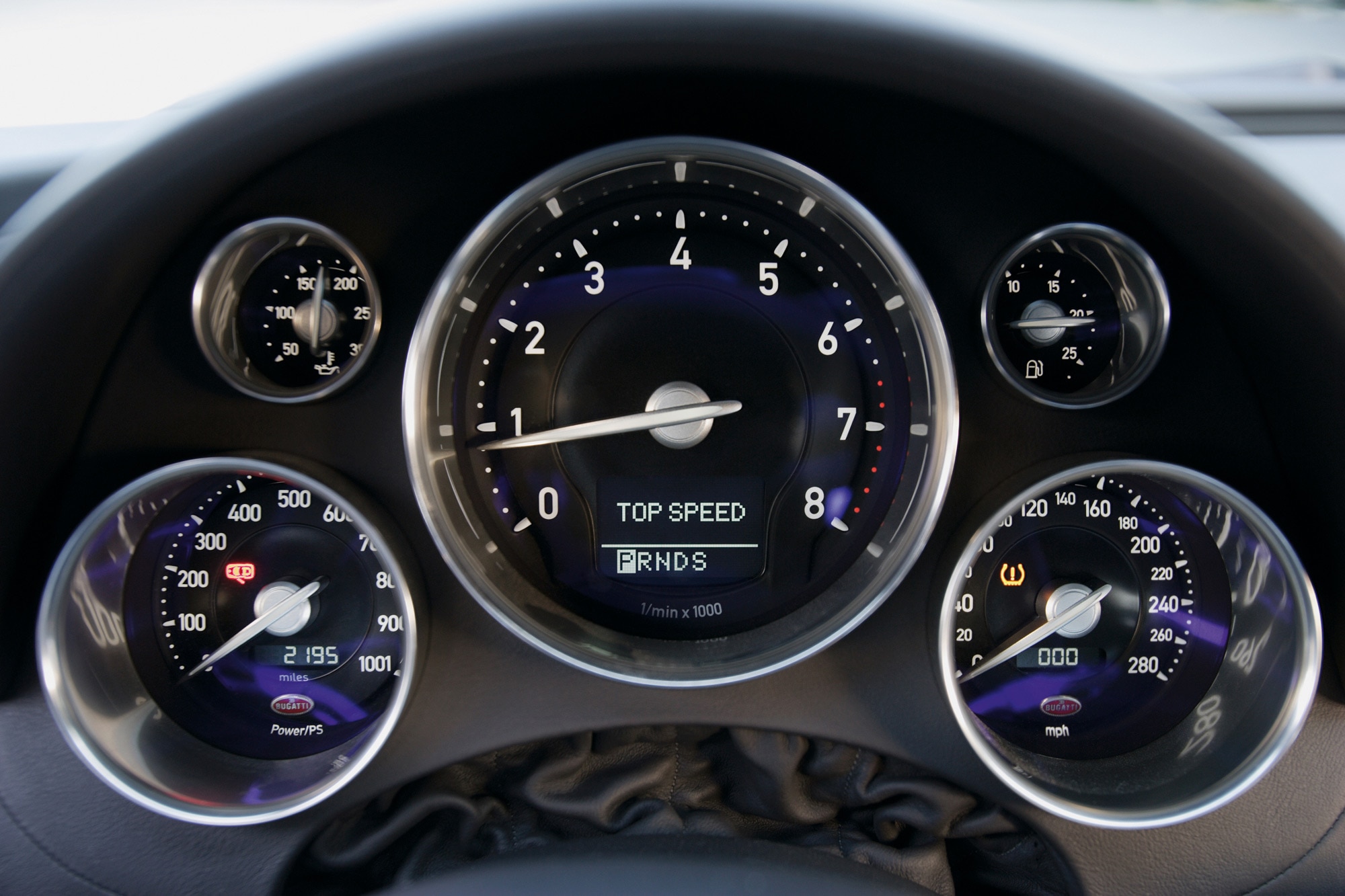Can I Trust My Car's Gauges?
Find out just how accurate your speedometer and fuel gauge really are.
 Bugatti
Bugatti
QuickTakes:
Drivers rely on the important information our cars give us through various gauges. You watch the speedometer so you don't get pulled over, and you glance at the fuel gauge every so often to determine when to make a gas stop. But how accurate is the information provided by these gauges?
A report from AAA that sampled 16 vehicles from various automakers helps show just how reliable they are.
Your GPS Is More Reliable Than Your Speedometer
Most speedometers don't actually measure your car's speed. They're essentially measuring the rpms (revolutions per minute) of the car's driven wheels. To offset this fact and because of additional factors such as the expanding and contracting of your tires and how the tread wears down over time, automakers typically make speedometers read high so you don't break the posted speed limit.
The readout will also change if you swap out the original tires for larger ones. Whether you drive a Buick or Bugatti, the best way to see your car's true speed is by using a GPS-based system such as a radar detector or mobile phone app.
The Fuel-Economy Gauge Seems to Be Mostly Accurate
AAA conducted lab testing that showed that the "average absolute difference" between a vehicle's displayed fuel economy and its lab-measured fuel economy was only 0.7 mile per gallon.
Resetting the vehicle's trip computer before and after long trips, according to AAA, can help owners get a better understanding of their vehicle and fuel economy.
Trusting the Miles-Until-Empty Display Can Keep You Rolling
Once your fuel gauge hits empty, there is typically a fuel reserve to get you to the next gas station without leaving you stranded. Relying on that reserve is not recommended, though. The amount of gas left over varies by make and model, but the average reserve capacity is typically around 1 to 4 gallons of gas.
In testing by AAA, range estimates were based on the fuel economy of the most recent trips, and it became more accurate toward the bottom of the tank. Either way, your fuel gauge can help you plan your trips, and it's worth keeping an eye on it, so you aren't left stranded. AAA reports that it responded to nearly half a million out-of-fuel calls in 2019 alone.



